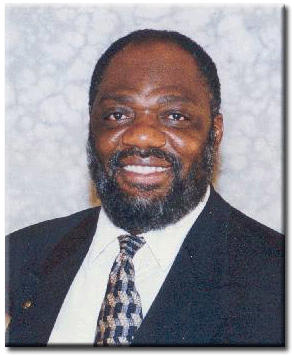
Factional Self-Disarmament May Not Be Good for Liberia
By Mohamedu F. Jones
The Perspective
Atlanta, Georgia
January 6, 2004
 |
| Mohamedu F. Jones |
Fundamentally, self-disarmament does not meet the minimal verification standard that would apply in a programmatic approach. Are these combatants really being disarmed? Who controls the weapons the fighters have turned in? Who protects the weapons the fighters have turned in? What is to keep these weapons from being used to fight in Liberia again or in other parts of West Africa? What is to keep the collected weapons from being re-sold in the lucrative arms trade?
Without verification, there are no assurances that in fact disarmament is really occurring, or that the commander "disarming" one group of combatants is not arming another, or if he or she will not sell the weapons, or will turn them all over to the U.N. for destruction. In a "buy back" program, what will keep a commander who has collected weapon from insisting that he or she should be paid personally for each weapon delivered to the U.N.? Factional self-disarmament may actually expose the fragile security situation in the country, and even in the region to exploitation.
Self-disarmament may also be adverse to the self-interest of ex-combatants because it may pose a problem to identifying who should participate in programs that would benefit them. Self-disarmament does not address demobilization and reintegration especially the critical period right after ex-combatants have been disarmed. What happens to them? How about those who have returned to their communities? Experts report that there is significant evidence that reintegration programs should not target ex-combatants as individuals, but instead should be oriented toward and based in the community. This cannot and will not happen with factional self-disarmament.
As Liberians have already learned, the proliferation of weapons makes it difficult for war-torn societies to recover from war and establish societies governed by the rule of law. The process of demobilization and disarmament must be programmatic if it is to succeed: one of the elemental requirements is registration, which serves as the final census of who will receive reintegration assistance, and who has been a combatant. Registration of combatants is an essential task that is not assured under the self-demobilization schemes being undertaken by the Liberia’s factions.
Another important part of a programmatic approach that is lacking in the self-disarmament plan is that ex-combatants are not receiving educational programming. Educational programs undertaken with combatants and their dependents, including vocational counseling, literacy training, basic education, and health education may increase their ability to reintegrate and commence productive civilian lives. These are very important in achieving long-term sustainable development. Self-disarmament under the circumstance reported in Liberia does not offer these essential ingredients for future.
Another area of concern is that the self-disarmament program does not address ex-combatants with special needs or circumstances, such as disabled former fighters, child soldiers and women fighters. All of these groups face peculiar problems following the conflict that need to be addressed as they return to civilian life.
Even with the very best of intentions, factional self-disarmament may not be in the best interest of Liberia. Entire communities need to be targeted in the process of disarming and demobilizing Liberia’s thousands of combatants, which does not occur with self-disarmament. For disarmament and demobilization to succeed in Liberia, it must be systemic and programmatic. Self-disarmament carries grave risks and is very likely to be counter-productive. Unverifiable and unsupervised collection of weapons by faction leaders pose very dangerous risks for the future peace and security of Liberia and the region, and ought to be reconsidered.

